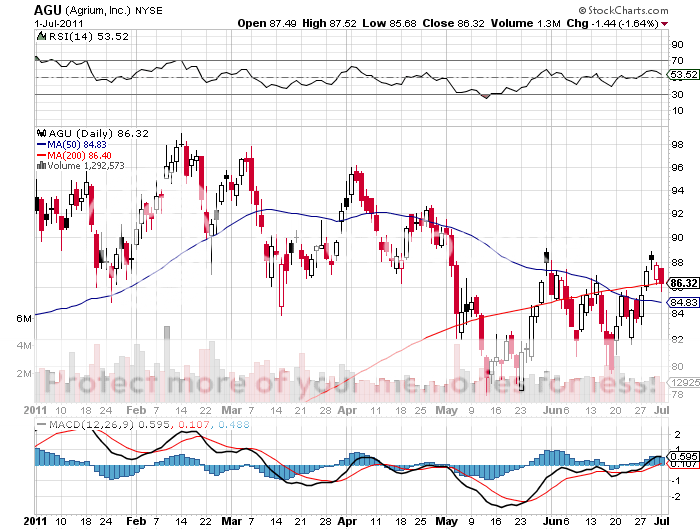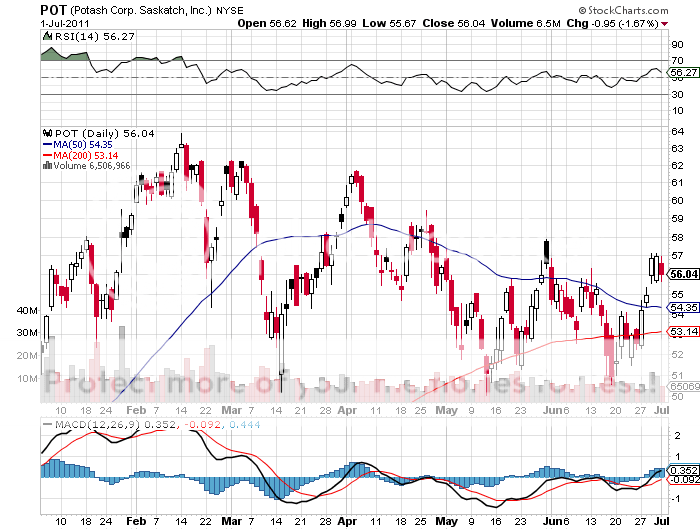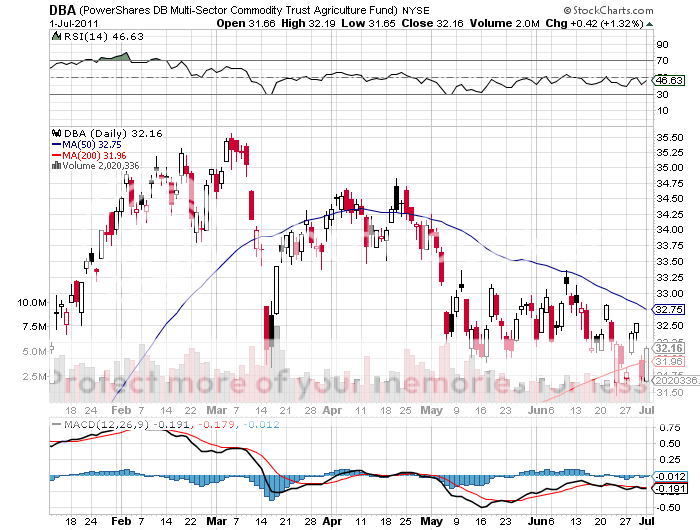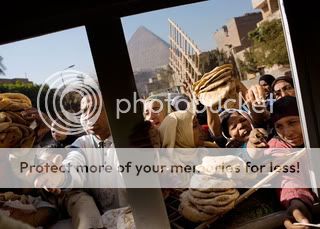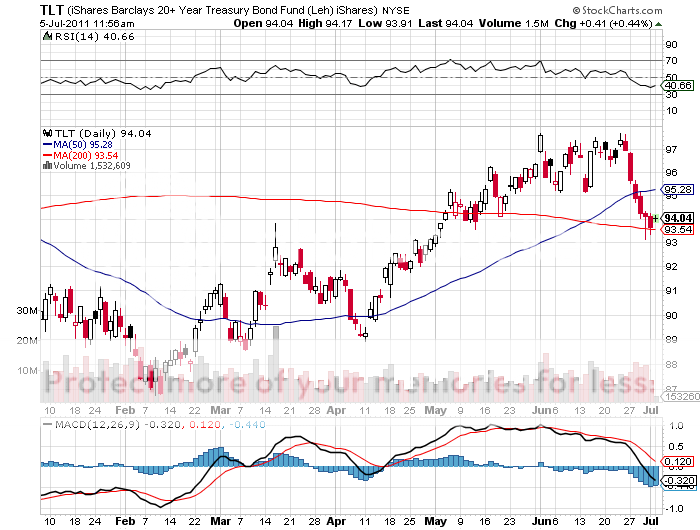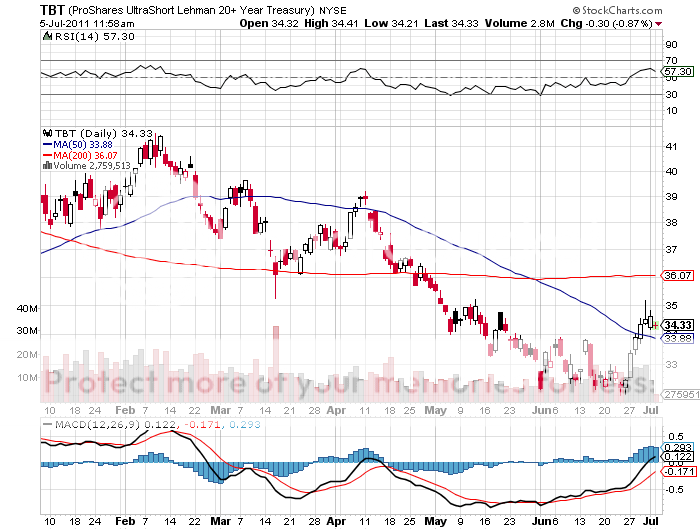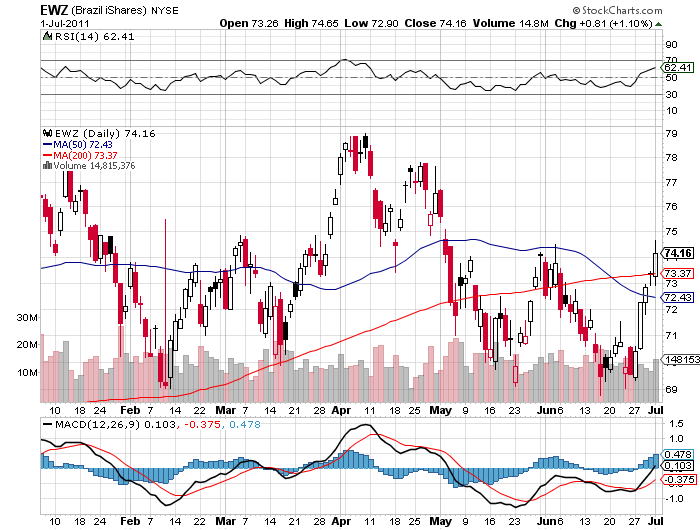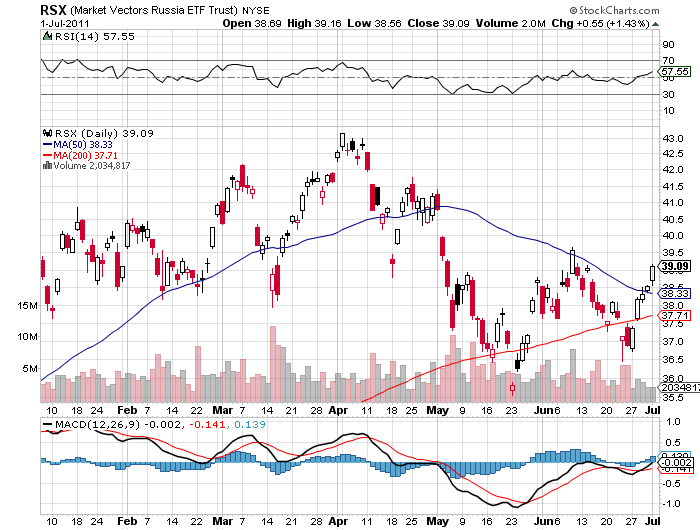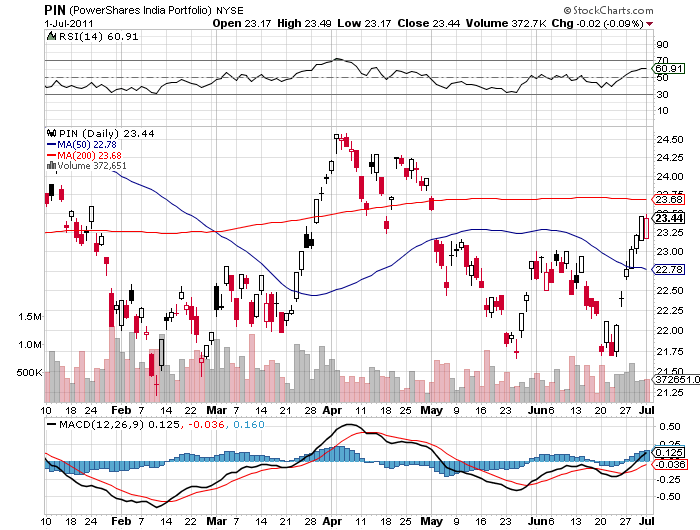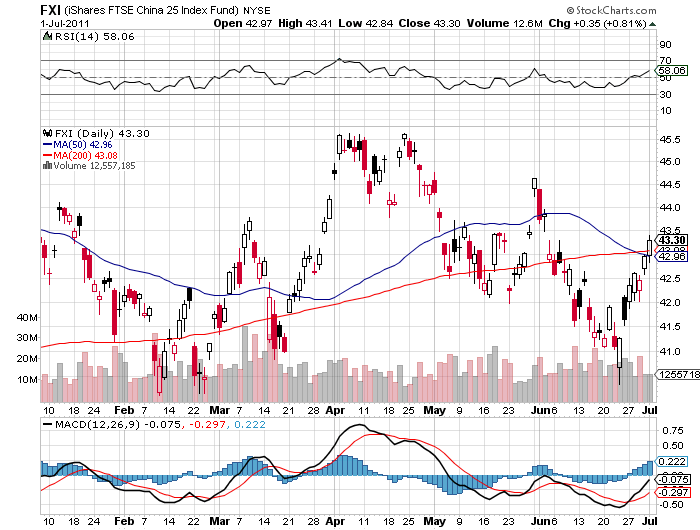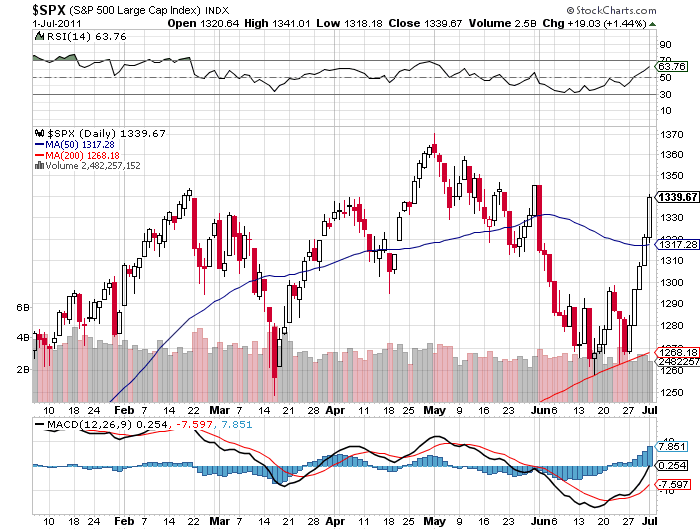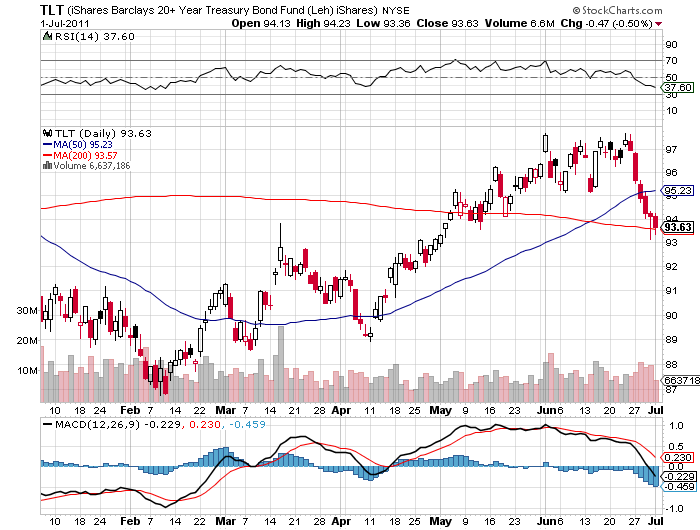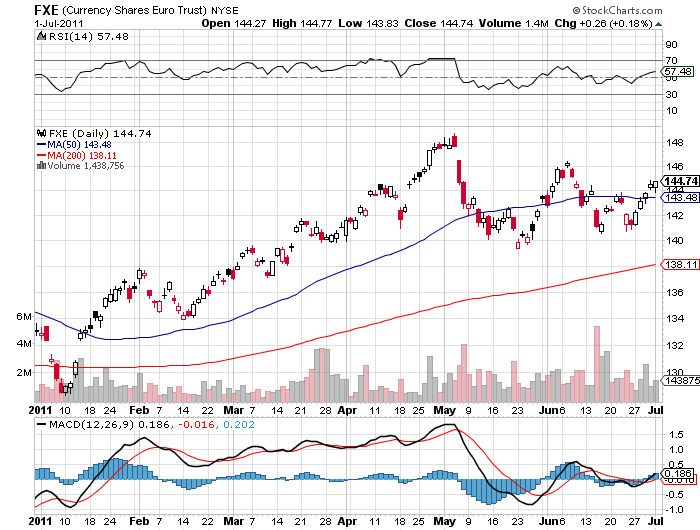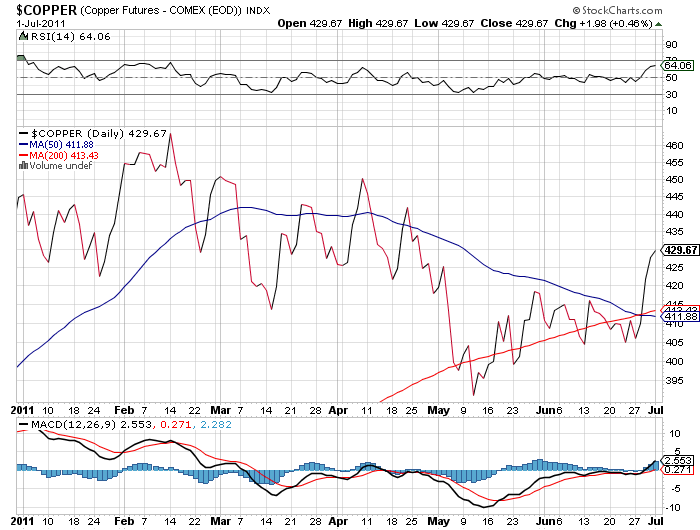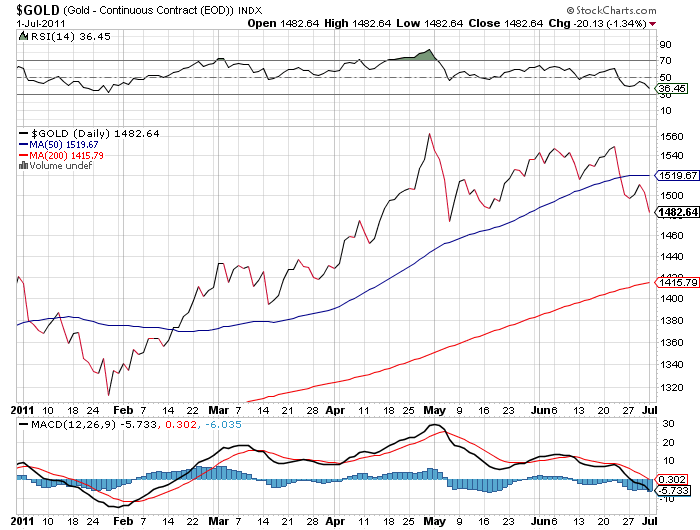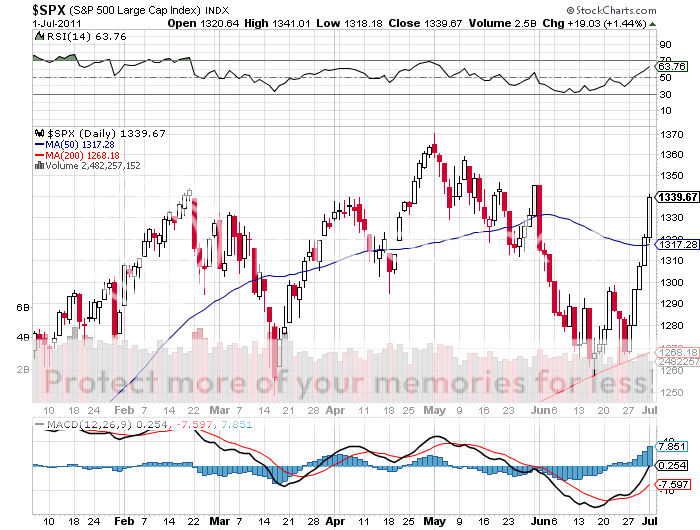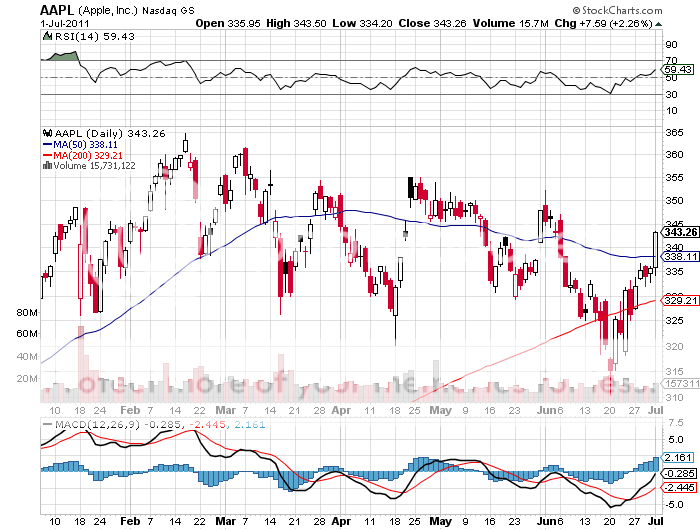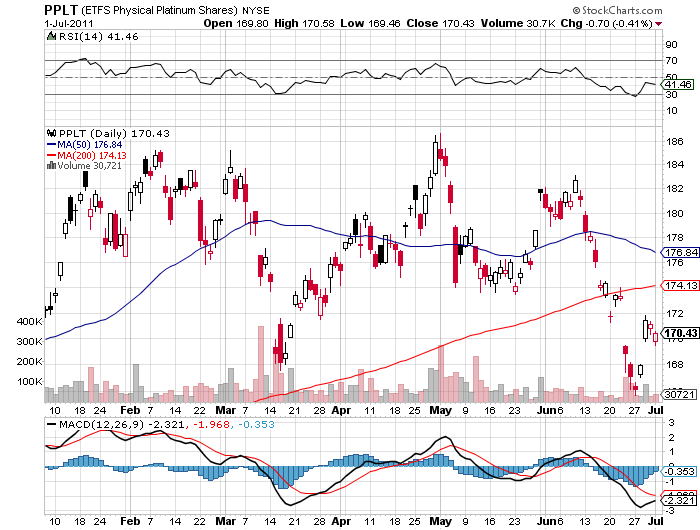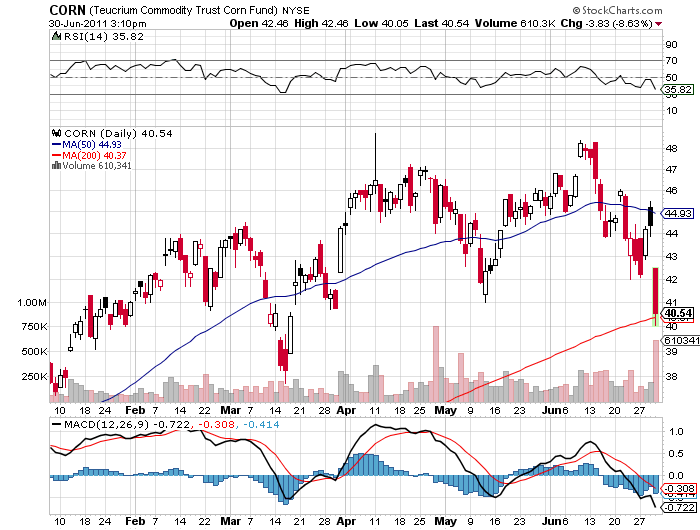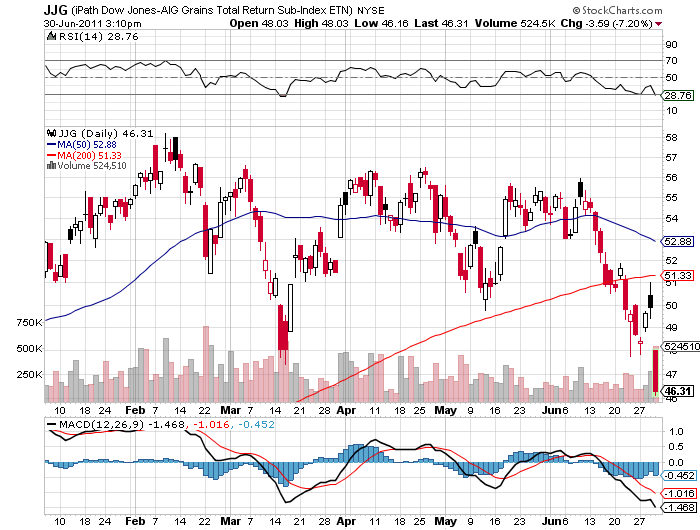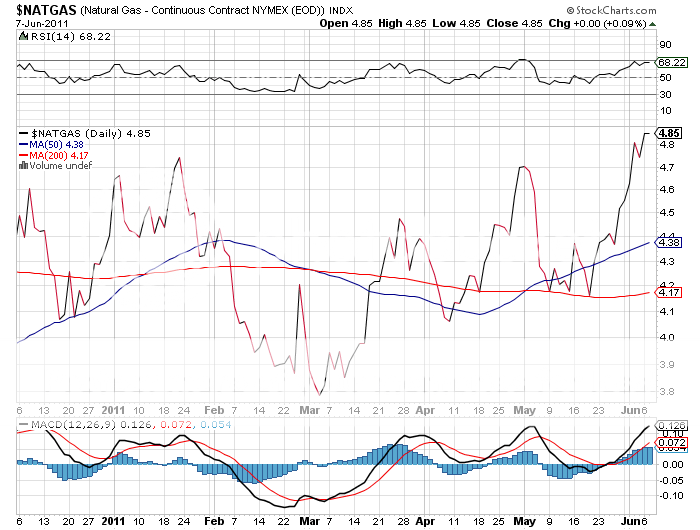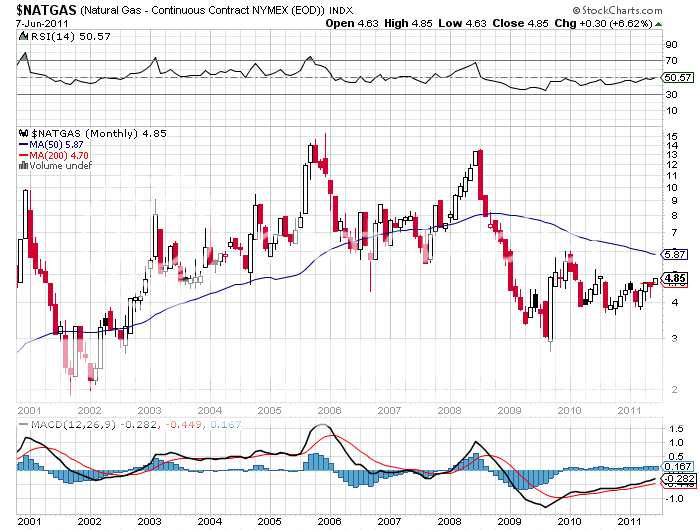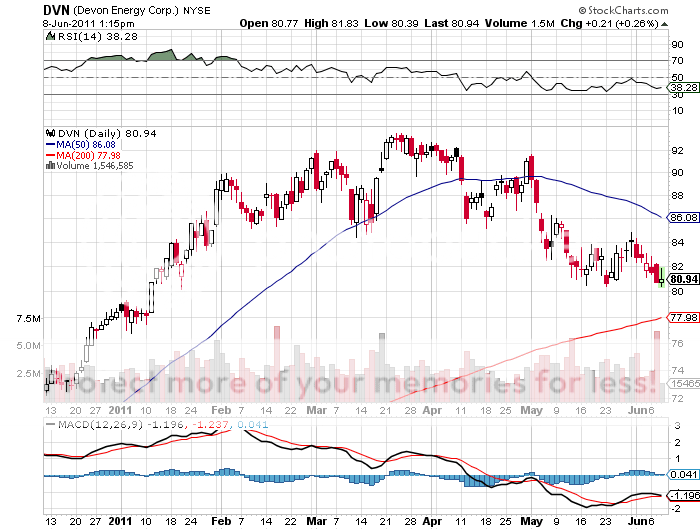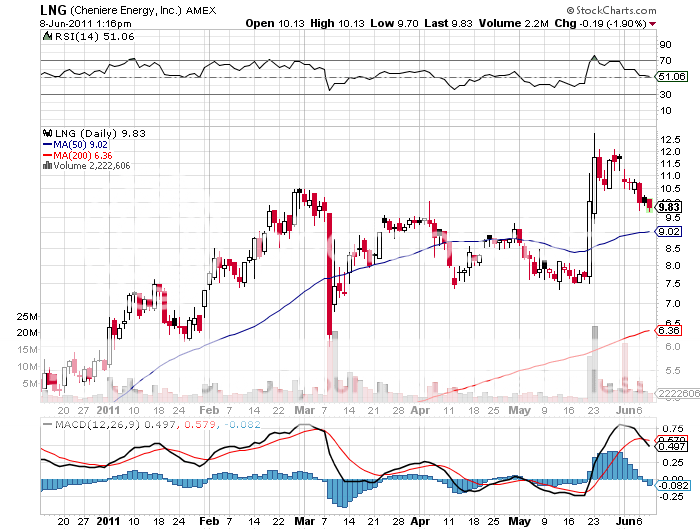Featured Trades: (THE BULL MARKET IN FOOD IS ONLY JUST STARTING), (AGU), (POT), (MON), (DBA)
3) The Bull Market in Food Is Only Just Starting. I believe that the surge in the price of food we have seen in the past two years is the beginning of a major, secular, long term trend. During the sixties, new dwarf varieties, irrigation, fertilizer, and heavy duty pesticides tripled crop yields, unleashing a green revolution. But guess what? The world population has doubled from 3.5 to 7 billion since then, eating up surpluses, and is expected to rise to 9 billion by 2050.
Now we are running out of water in key areas like the American West and Northern India, droughts are hitting Australia, Africa, and China, soil is exhausted, and global warming is shriveling yields. Underground water supplies are so polluted with toxic pesticide residues that rural cancer rates are soaring.
Food reserves are now at 30-40 year lows, depending on who you listen to. Rising emerging market standards of living are consuming more and better food, with Chinese pork demand rising 45% from 1993 to 2005. The problem is that meat is an incredibly inefficient calorie transmission mechanism. To produce one pound of beef, you need 16 pounds of grain and over 2,000 gallons of water. I won't even mention the strain the politically inspired ethanol and biofuel programs have placed on the food supply.
It is possible that genetic engineering, sustainable farming, and smart irrigation could lead to a second green revolution, but the burden is on scientists to deliver.
The amount of arable land per person has fallen precipitously since 1960, from 1.1 acres to 0.6 acres, and that could halve again by 2050. Water is about to become even more scarce than land. Productivity gains from new seed types are hitting a wall.
China, especially, is in a pickle because it has 20% of the world's population, but only 7% of the arable land. It has committed $5 billion to agricultural land in Africa. There are now thought to be over one million Chinese agricultural workers on the Dark Continent. Similarly, South Korea has leased half the arable land in Madagascar to insure their own food supplies.
An impending global famine has not escaped the notice of major hedge funds. George Soros has snatched up 650,000 acres of land in Argentina and Brazil on the cheap, an area half the size of Rhode Island, Others are getting into the game, quietly building portfolios of farms in the Midwest and the South.
The net of all of this is that food prices are going up, a lot. While prices are certainly overheated at the moment, you should use any decent pull back to build core long positions in corn, wheat, and soybeans, as well as in the second derivative plays like Agrium (AGU), Potash (POT) and Monsanto (MON). You might also look at the PowerShares Multi Sector Agricultural ETF (DBA).
-
-
-

